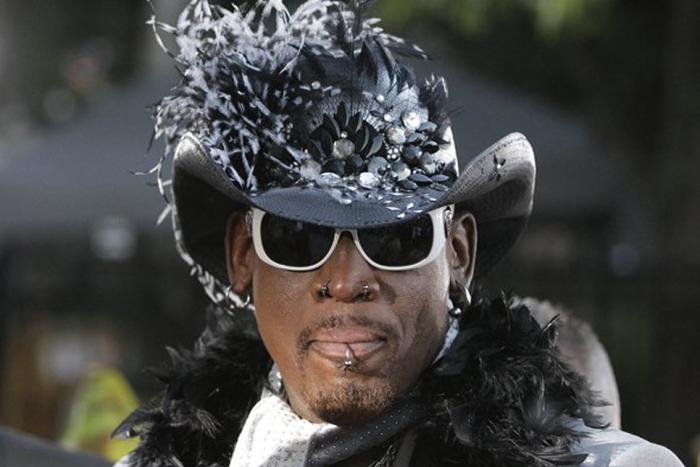Galileo has his own moons. In satellite imagery, one is white, one is a mottled amber, one glows like flecked obsidian, and the largest is a dove grey. The Galilean moons circle Jupiter, and Galileo discovered them in January of 1610 while tinkering with his new and improved telescope. In 1633, that same telescope got him hauled in front of the Inquisition to recant his observation that the Earth moves around the sun.
Since then, tinkerers with telescopes have shaken our conception of the universe, and the Church has eaten crow for its treatment of the guy people have called “the father of modern observational astronomy.” Just in the past few years, scientists have discovered over a thousand new planets, and they believe there are billions more where those came from. Moreover, they believe it’s very possible there are planets besides Earth that play host to life. The research team at SETI (that’s the Search for Extraterrestrial Intelligence) has a bottle of champagne on ice at all times; like legal drinking age Boy Scouts with astrobiology degrees, they are always prepared to celebrate the first sign of intelligent alien life.
In Jack Hitt’s new book, Bunch of Amateurs: In Search of the American Character, he discusses the work of contemporary amateur astronomers looking for life beyond our planet, and writes: “The atheist/theist squabble of today would shift dramatically. The discovery of other life would not end organized religion. Probably nothing could. But the weight of authority would shift dramatically closer to the scientists.” The Church itself, however, seems confident that aliens could be folded into their worldview without too much trouble. This time around, the Church is a lot more on board with a potentially cosmology-shattering discovery.
Brother Guy Consolmagno, one of the Pope’s astronomers, professes himself “delighted” by the idea of intelligent extraterrestrial life. Consolmagno has a Ph.D from the University of Arizona‘s Lunar and Planetary Laboratory, and spends half his time watching the sky at the Vatican Observatory in Arizona (the other half he’s back in Rome, curating the Vatican’s meteorite collection). He got a certain amount of guff for saying, in 2010, that he would baptize an alien: “Any entity – no matter how many tentacles it has – has a soul.” But it was from bloggers defending aliens’ right to freedom of religion, not the Pope. (And anyway, he said he would baptize an alien “only if it asked.”)
Some lay Catholics and priests were a little nonplussed by this news. The journal Catholic Insight confessed, “We are at a loss to know where to start with these remarkable ideas: do aliens have the need of regeneration by baptism?” Do aliens have souls? In 2009, the Vatican’s chief astronomer, Father Gabriel Funes, said:
Just like there is an abundance of creatures on earth, there could also be other beings, even intelligent ones, that were created by God. That doesn’t contradict our faith, because we cannot put boundaries to God’s creative freedom. As saint Francis would say, when we consider the earthly creatures to be our “brothers and sisters”, why couldn’t we also talk about a “extraterrestrial brother”? He would still be part of creation.
God has artistic license, and his artistic foibles may run to a secret second family tucked away somewhere. However, Father Funes doesn’t specify whether the soul of an alien would be exactly the same as a human soul. Pope John Paul II said, “the animals possess a soul and men must love and feel solidarity with our smaller brethren.” January 13th was the feast day of St. Anthony, the patron saint of animals, and people brought their dogs, rabbits, chickens, and parrots to the Vatican as well as to churches across Spain to be blessed. But no one is asking their cat to give confession—their sins would be too dastardly, for starters, but also, they aren’t perceived as capable of understanding moral rules.
The chances of an alien asking the Pope’s astronomer to baptize him/her/it seem slim. Most scientists and philosophers predict that if we were to come into contact with an extraterrestrial civilization, it would be far more advanced than our own. In 2011, discovery.com’s Dave Mosher published the following IM conversation with Seth Shostak, the senior astronomer at SETI:
Dave on Earth: Do you ever ponder why they would want to contact us -- and would you be afraid of ever making contact?
SethHeartsAliens: Well, I’m certainly not afraid of hearing them on the radio. After all, they won’t know that we picked up their signal.
Dave on Earth: What if their politically correct greeting is to chew off one of our arms or something?
SethHeartsAliens: If aliens ever came to Earth --- well, that might be a bit different!
Indeed, usually when an advanced society visits a less-advanced society, it’s bad news for the less-advanced.
You didn’t see a lot of Europeans adopting the creation myths of First Nations in the 16th century. Stephen Hawking’s prediction is that if aliens visited us, they would probably be after our earthly resources rather than their heavenly salvation. And in his conversation with Dave Mosher, Seth Shostak goes on to say that any alien life we might come into contact with would most likely be post-organic—what he calls “thinking machines.” He invites Mosher to contemplate the lickety-split progress humans have made through various stages of technology, from radio, about a hundred years ago, to today’s speedy computers. If an alien society has progressed through the same stages, “within a century after that, maybe, they’ve invented thinking machines. So: if any aliens we hear are as much as a few centuries ahead of us, they’ve already invented their successors.”
So far, the Vatican has not made a pronouncement on whether computers have souls. Given that we are probably closer to inventing thinking machines ourselves than we are to any face-to-face (or face-to-tentacle) meeting with intelligent extraterrestrial life, maybe Brother Consolmagno should be asking himself: would he baptize a computer if it asked him?






